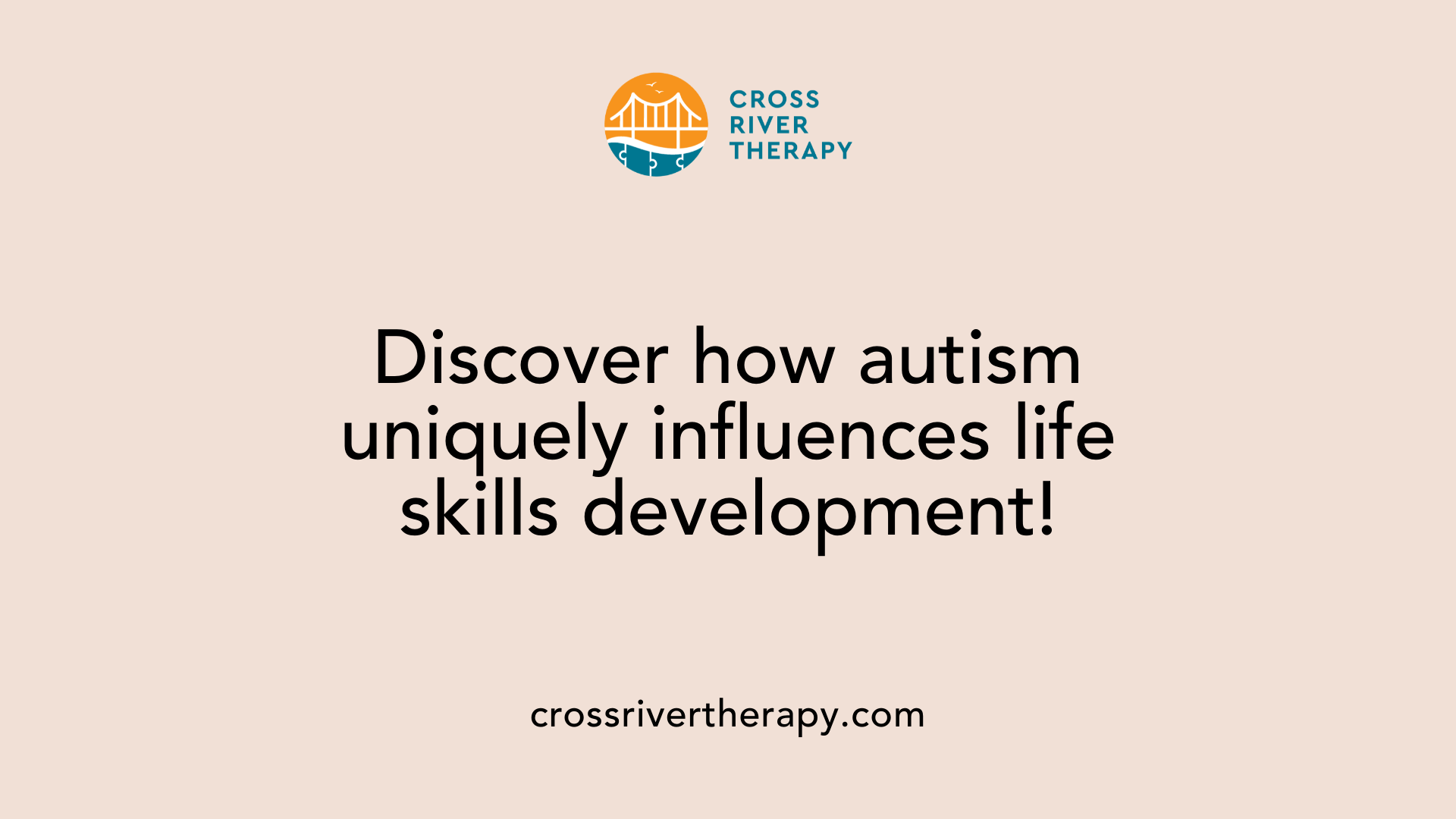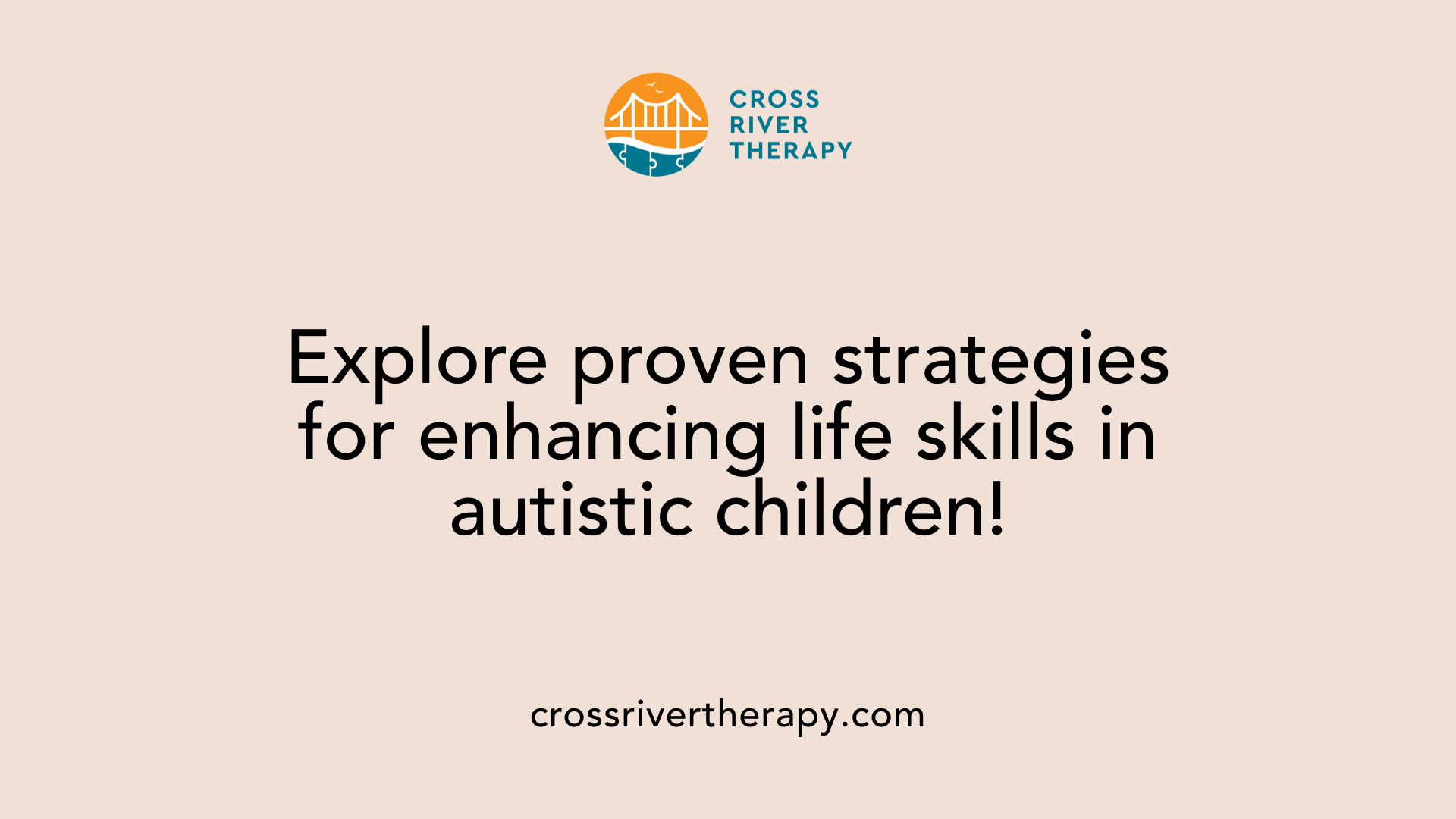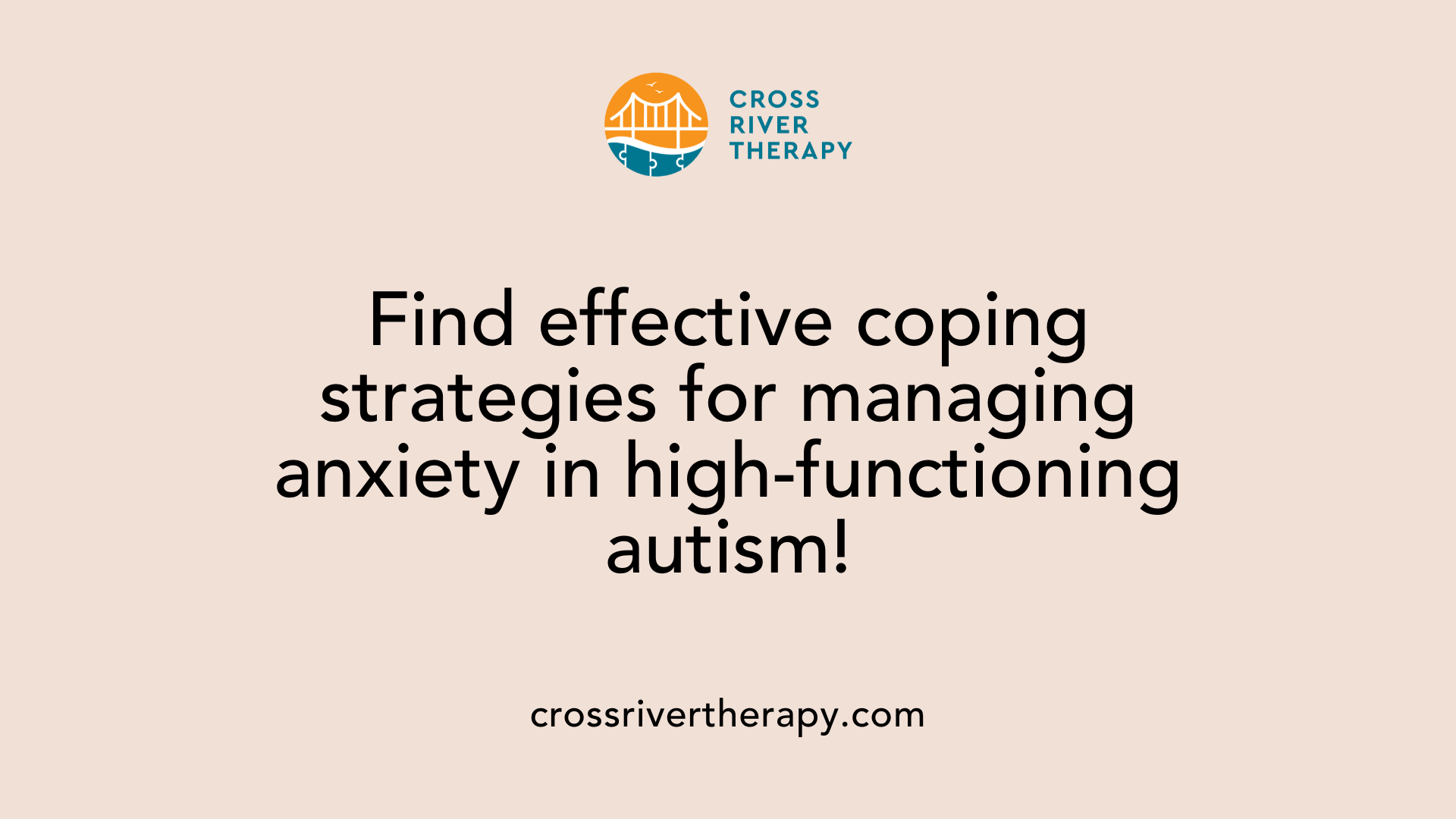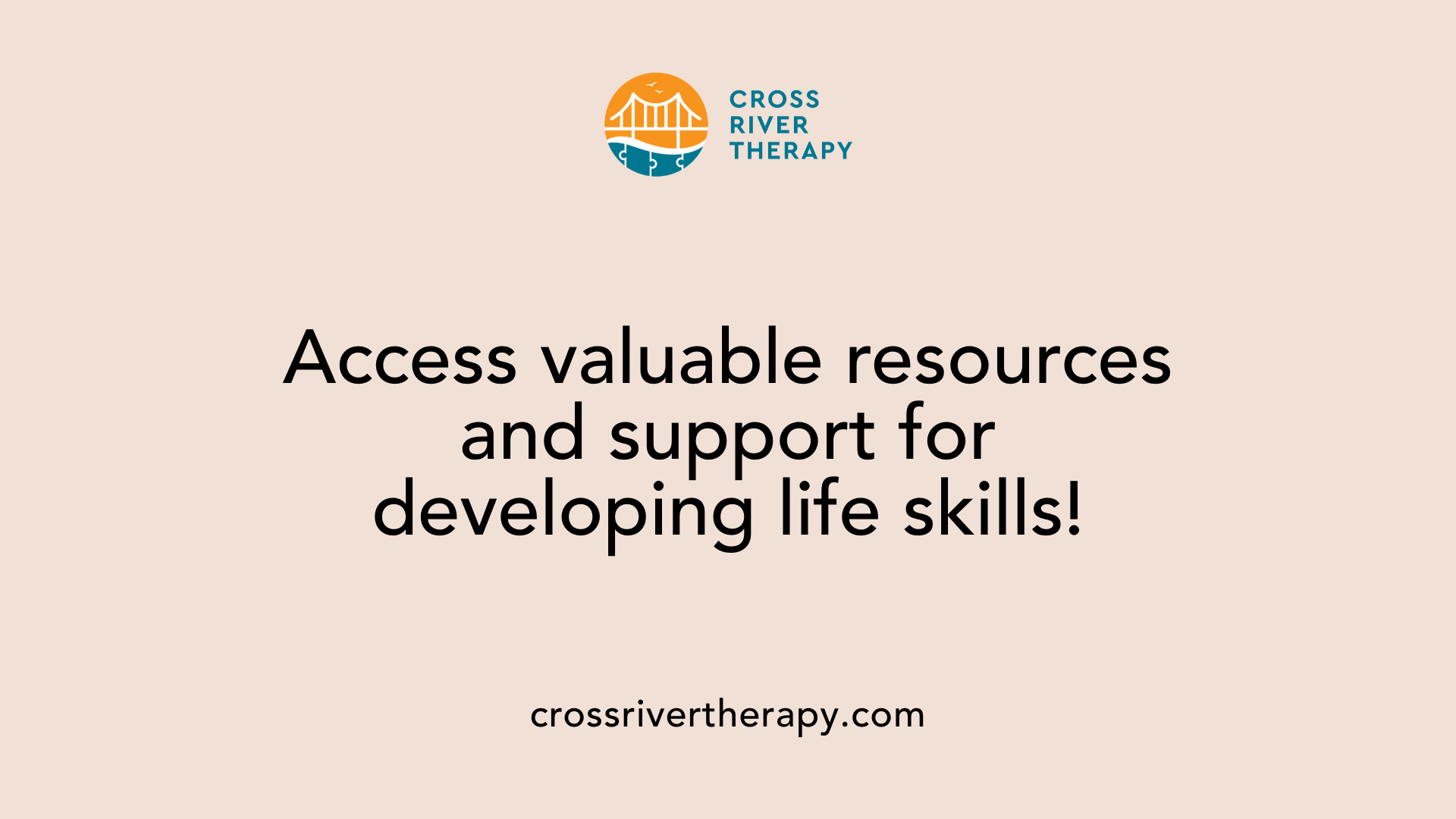Developing Life Skills in Autism
Empowering Autistic Individuals Through Life Skills Mastery
Understanding the Importance of Life Skills
For individuals with autism, developing life skills is crucial to fostering independence and enhancing quality of life. These skills help individuals navigate daily challenges, promote self-esteem, and equip them for success in various environments, from home to community settings. This article explores the significance of these skills and provides strategies and resources for caregivers and educators dedicated to empowering autistic individuals.
Autism’s Impact on Life Skills Development

How does autism affect life skills?
Autism affects life skills by presenting unique challenges in communication, social interaction, and daily tasks. For many children on the spectrum, traditional approaches to learning may not suffice. They often require personalized education and training focused on essential skills such as personal care, practical living, and social abilities.
Programs like those at the Sarah Dooley Center for Autism integrate life skills training directly into daily curricula. These programs help to foster independence, decision-making, and self-advocacy, allowing children to tackle real-world challenges. Specialized teaching methods, including applied behavior analysis, are employed to cater to each child's unique needs and learning styles.
Challenges presented by autism in developing life skills
Many children with autism may struggle with executive functioning skills, which encompass planning, organizing tasks, and managing social interactions. This can lead to difficulties in areas like personal hygiene, household chores, and engaging appropriately within community settings. Moreover, the pace at which children with autism acquire these skills varies, requiring consistent reinforcement over time to achieve mastery.
Integration of life skills in educational settings
Effective life skills programs designed for children with autism incorporate practical experiences and utilize visual aids. Including activities like grocery shopping, cooking, and public transportation helps solidify their understanding of everyday tasks. Education settings that emphasize these skills not only teach children how to navigate their world but also promote self-esteem and confidence in their abilities, ultimately preparing them for adulthood.
Personalized approaches for life skills training
An individualized approach is vital for successful life skills training. Assessment tools, such as the Community-Based Skills Assessment (CSA), can identify specific areas where children may need more focus and support. Teaching methods may include breaking tasks into manageable steps, video modeling, and role-playing to ensure understanding and retention. By tailoring the learning process to each child's strengths and challenges, parents and educators can effectively equip children with autism to lead independent and fulfilling lives.
Effective Strategies for Teaching Life Skills

Teaching Methodologies for Life Skills
To effectively teach life skills to autistic children, starting early is essential. Coaching should be personalized to cater to each individual's strengths and challenges. Basic categories of life skills include:
- Self-Care: Personal hygiene and grooming
- Money Management: Budgeting and shopping techniques
- Community Participation: Navigating public spaces and services
Addressing these areas in practical, hands-on settings ensures relevance and engagement.
Importance of Early Intervention
Research indicates that early intervention can substantially improve outcomes in life skills development for children with autism. Providing more than 20 hours of targeted support before the age of three has shown better results for skill acquisition. This approach helps children gain independence progressively and effectively.
Hands-On Learning Approaches
Utilizing clear instructions accompanied by visual supports, such as checklists, enhances comprehension for autistic learners.
- Task Analysis: Breaking tasks down into manageable parts allows children to master skills step-by-step.
- Practical Scenarios: Engaging in real-life activities like shopping or meal preparation reinforces learning.
By consistently offering opportunities to practice these skills in relevant contexts, both parents and educators can facilitate a more seamless learning process.
Additional Information
To explore further methodologies and techniques for teaching life skills to autistic children, visit specialized resources focused on autism education.
Defining and Teaching Functional Skills

What are functional skills in autism?
Functional skills in autism encompass the essential abilities individuals need for daily living, significantly enhancing their overall quality of life. These skills cover a broad range of areas, including:
- Communication: Effectively expressing needs and emotions.
- Self-care: Managing personal hygiene and grooming.
- Safety awareness: Recognizing dangers in various environments.
- Leisure and recreation: Engaging in enjoyable activities.
- Vocational skills: Preparing for job tasks and workplace behaviors.
Teaching functional skills helps to foster independence and diminish maladaptive behaviors by offering constructive alternatives for expressing needs and desires.
How do functional skills promote independence?
Functional skills play a pivotal role in promoting independence among individuals with autism by enabling them to navigate day-to-day activities without reliance on others. By mastering these skills, individuals can sequence tasks, make informed choices, and increase their self-sufficiency—transforming their interactions at home, school, and within the community.
Incorporating functional skills into education
Integrating functional skills into educational frameworks, such as Individualized Education Programs (IEPs), is crucial for tailored learning success. Teachers can utilize effective strategies like visual aids and task analysis, which breaks down broader skills into manageable steps. These adaptations not only assist in skill comprehension but also help solidify learning in diverse settings, paving the way for increased functionality and independence.
Coping Strategies for High-Functioning Autism

What are coping skills for high-functioning autism?
Coping skills for individuals with high-functioning autism can include various calming strategies such as rocking in a chair, listening to music, deep breathing, and engaging in vigorous exercise. Caregivers are encouraged to teach these skills proactively during calm moments and to create visual routines that simplify using these strategies when anxiety arises.
The role of routine in developing coping skills
Implementing structured calming techniques—like taking deep breaths, clenching fists, and counting to ten—provides a tangible way to manage stress. Regular exercise, such as going on family walks, is effective for reducing anxiety symptoms and can be seamlessly incorporated into daily routines. By establishing a consistent schedule, individuals are likely to feel more secure and prepared for the day’s challenges.
Resources for enhancing self-management
Additionally, resources such as mindfulness apps can support the development of coping skills and self-management techniques. These tools help individuals navigate uncertain or stressful situations more effectively, making it easier to manage their responses and remain grounded during anxious moments.
Resources for Developing Life Skills

Are there resources available to help develop life skills in individuals with autism?
Yes, there are many resources available to help develop life skills in individuals with autism. These include Independent Living Programs that provide educational components, vocational training, and hands-on instruction in essential tasks like money management and cooking.
Support programs and workshops
Programs like the Life Skills Autism Academy specialize in early intervention, offering structured workshops focused on critical life skills such as cooking, personal hygiene, and budgeting. These programs highlight the importance of intensive therapy in facilitating personal growth and independence for children on the autism spectrum.
Assessment tools for personalized skill development
Assessment tools like the Assessment of Functional Living Skills (AFLS) and the Assessment of Basic Language and Learning Skills (ABLLS) help identify specific skill needs for individuals with autism. These assessments guide tailored educational plans, ensuring that training is relevant and effective.
Community resources for learners and caregivers
Community initiatives play a crucial role in skill development. Resources such as local support groups, specialized apps, and online platforms provide rich opportunities for improving social skills, self-care routines, and self-advocacy. Organizations, including the Sarah Dooley Center for Autism and other community support initiatives, emphasize structured curricula that make life skills training accessible, ensuring individuals with autism are well-equipped for independent living.
Benefits of Life Skills Training for Autism
Independence and Self-Esteem Enhancement
Life skills training plays a crucial role in enhancing independence among individuals with autism. By mastering essential skills, such as personal care, cooking, and money management, these individuals can begin to navigate daily life more confidently. This newfound independence often leads to a significant boost in self-esteem and overall happiness, as they take ownership of various aspects of their lives.
Building Vocational and Social Skills
Vocational skills are another primary focus of life skills training. Programs often include practical experiences related to job-seeking, workplace etiquette, and managing responsibilities. Additionally, social skills development is integrated into these training sessions, allowing individuals to learn effective communication, relationship-building, and group behavior. This comprehensive approach fosters the ability to engage meaningfully in social environments.
Preparing for Adulthood Transitions
As individuals with autism transition into adulthood, life skills training becomes increasingly vital. Programs that emphasize practical living skills—like budgeting, transportation, and self-advocacy—prepare them for the demands of adult life. With these foundations in place, autistic individuals can achieve greater autonomy, making informed decisions and actively participating in their communities.
Empowering Through Skill Development
Life skills training plays a pivotal role in empowering individuals with autism, enabling them to lead more independent lives and integrate more fully into society. By focusing on personalized education and resourceful teaching strategies, caregivers and educators can foster a supportive environment for developing these skills. In turn, autistic individuals can achieve greater independence, confidence, and overall well-being, navigating their world with newfound capabilities.
References
- Life skills for autism
- The 7 Essential Life Skills for Those with Autism - Harbor School
- Life Skills: A Vital Part of Autism Education
- Life Skills - The Autism Community in Action
- Life Skills Programs | Autism Speaks
- 10 Life Skills You Should Teach Kids with Autism
- 5 Autism Life Skills To Help Kids into Independent Living
- Independent Living & Autism: Teach Skills to Help Your Child
- Life Skills Autism Academy: ABA Therapy Center



